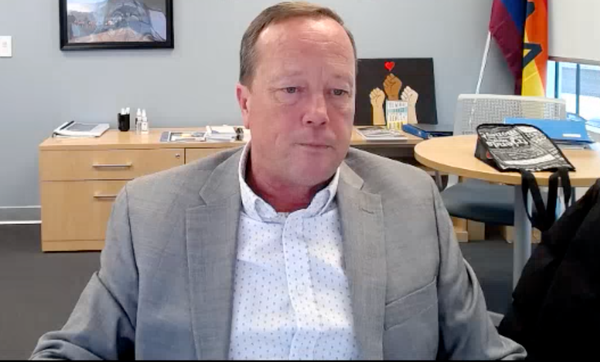Recovery Capitalists 1: Mobilizing policy through allies
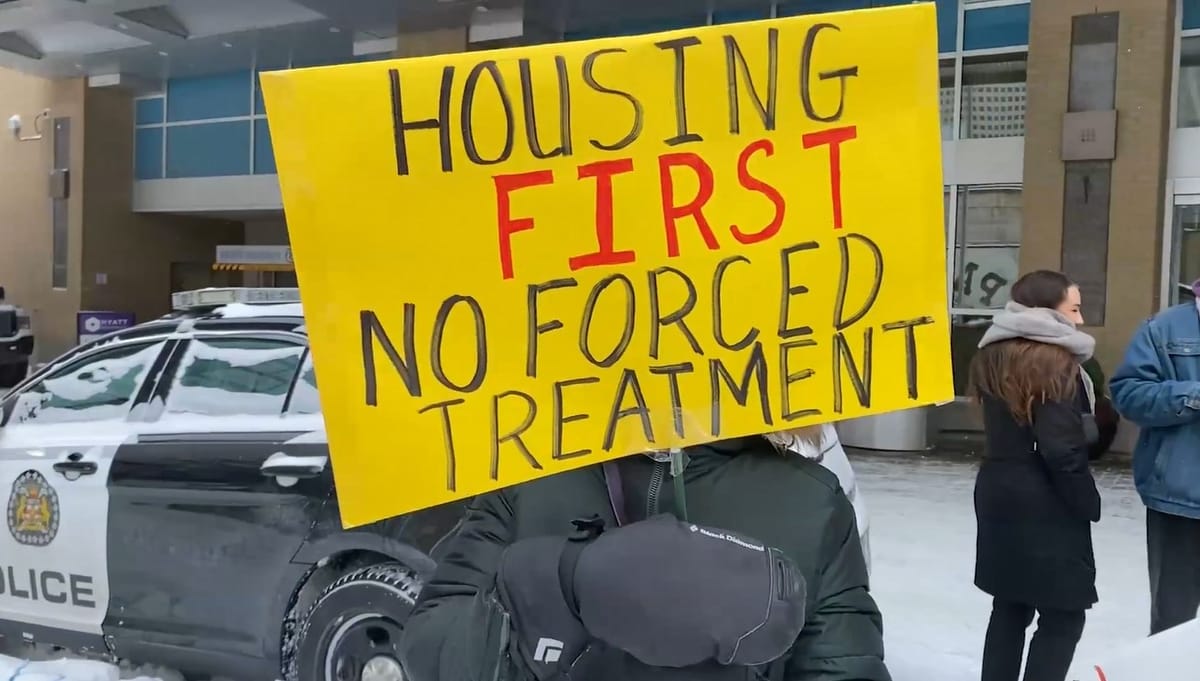
The upcoming Recovery Capital Conference in Calgary serves three main functions: mobilizing Alberta government policy through credible actors, repaying these actors with public funding, and recruiting for the far-right.
Part 1 examines the first of these, and what happens when credibility falls short.
In February 2023, Last Door Recovery Society fell under legal scrutiny for sexual assault allegations against a long-time employee, Adam Haber. Haber was eventually charged with three counts of sexual assault by New Westminster Police after at least 11 women brought forth allegations.
The investigations are ongoing, but Last Door continues to sit at the centre of Recovery Capital Conference and the consolidation of the recovery-industrial complex it facilitates. In the interim, Vancouver Pride cut ties with Last Door and so, it appears, have a majority of featured conference sponsors.
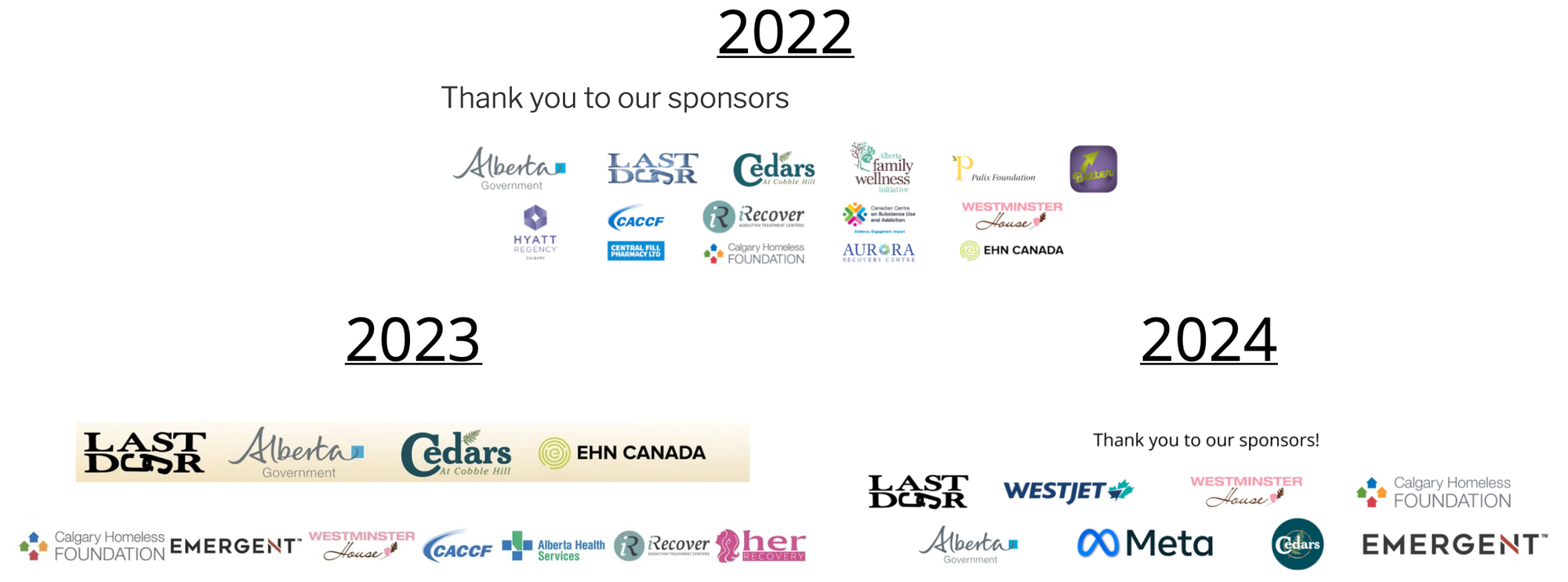
This year's Recovery Capital Conference, with tickets priced over $600, proceeds nonetheless, albeit in a shortened two-day format with gaping holes in the speaker lineup. These have been filled by the Alberta government and its closest allies. Conference organizers allocated 6 of 30 sessions to at least one member of the Alberta, Saskatchewan or Ontario governments or federal Conservative Party; not coincidentally, the provinces and federal party that are aligned with Alberta's Reagan-era drug policy agenda. Three more presentations are occupied by for-profit corporations funded by the Alberta government and a further two are under direct control of the Alberta government through Alberta Health Services.
It would normally be odd for a private conference to allow one-third of its content to be hijacked by provincial government policy-pushers. (If you include nonprofits funded by Alberta's Ministry of Mental Health & Addiction, this rises to over half.)
Odd, perhaps, if the central organizer wasn't the recipient of nearly $2 million in sole-source contracts from the Alberta government to build an app. As Drug Data Decoded documented in December following an oopsie! disclosure by an Alberta government FOIP office, Last Door Recovery Society appears to be using that money to privately hoard the health outcome data of people accessing addiction services in Alberta.
Incredibly, the government admitted it does not have access to these data. It has no way to independently evaluate the $300 million-per-year system it is building.
In February 2023, a group of us protested the Alberta Recovery Conference (run by the same people). Our press release asserted: "Because the UCP government has invested hundreds of millions in private and for-profit treatment without reporting or accountability, it is wrong to conflate 'The Alberta Model' with recovery or treatment. Paired with expanded police powers, the model is more accurately described as incarceration." A year on, this framing should be clear to prospective sponsors and those attendees who haven't been stuffing their pockets with corporate welfare.
Recovery Capital Conference fulfills three central purposes that will be explored in this series:
- Mobilizing Alberta government policy through credible actors. By cashing in the dwindling credentials of a few well-placed researchers and physicians, the Alberta government has manufactured a media narrative in which evidence bases for abstinence-oriented and harm-reduction strategies are locked in vigorous academic debate. They are not: evidence for the Alberta model's ability to address the toxic drug crisis approaches zero, while evidence for anti-carceral and harm-reduction approaches continues to balloon.
- Repaying these actors with public funding. Several large Alberta government capital contracts have been allocated to speakers, sponsors and organizers of Recovery Capital Conferences and presenters at Alberta government drug policy review panels. The Alberta government is working to keep the terms of these deals private.
- Recruiting for the far-right. The Alberta government's strategy has national utility for the Conservative Party of Canada, which consummated its romance with far-right actors during the Freedom Convoy to cannibalize support from the far-right People's Party of Canada. The CPC has since pivoted hard into abstinence-oriented drug policy best represented by the 'Alberta model' and its mobilization through Recovery Capital Conference.
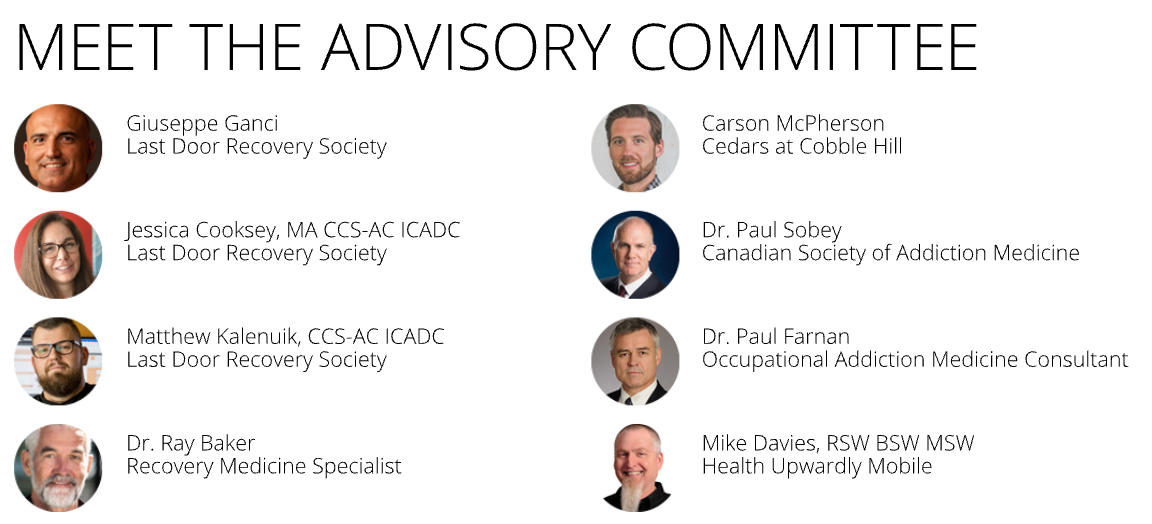
Mobilizing Alberta government policy through credible actors
In 2021, Alberta was given its final glimpse at how drug toxicity deaths disproportionately affect First Nations people. The data from 2016 to 2020 were shocking: while deaths among non-First Nations people remained relatively constant, deaths among First Nations people grew rapidly and underwent a massive spike in 2020.
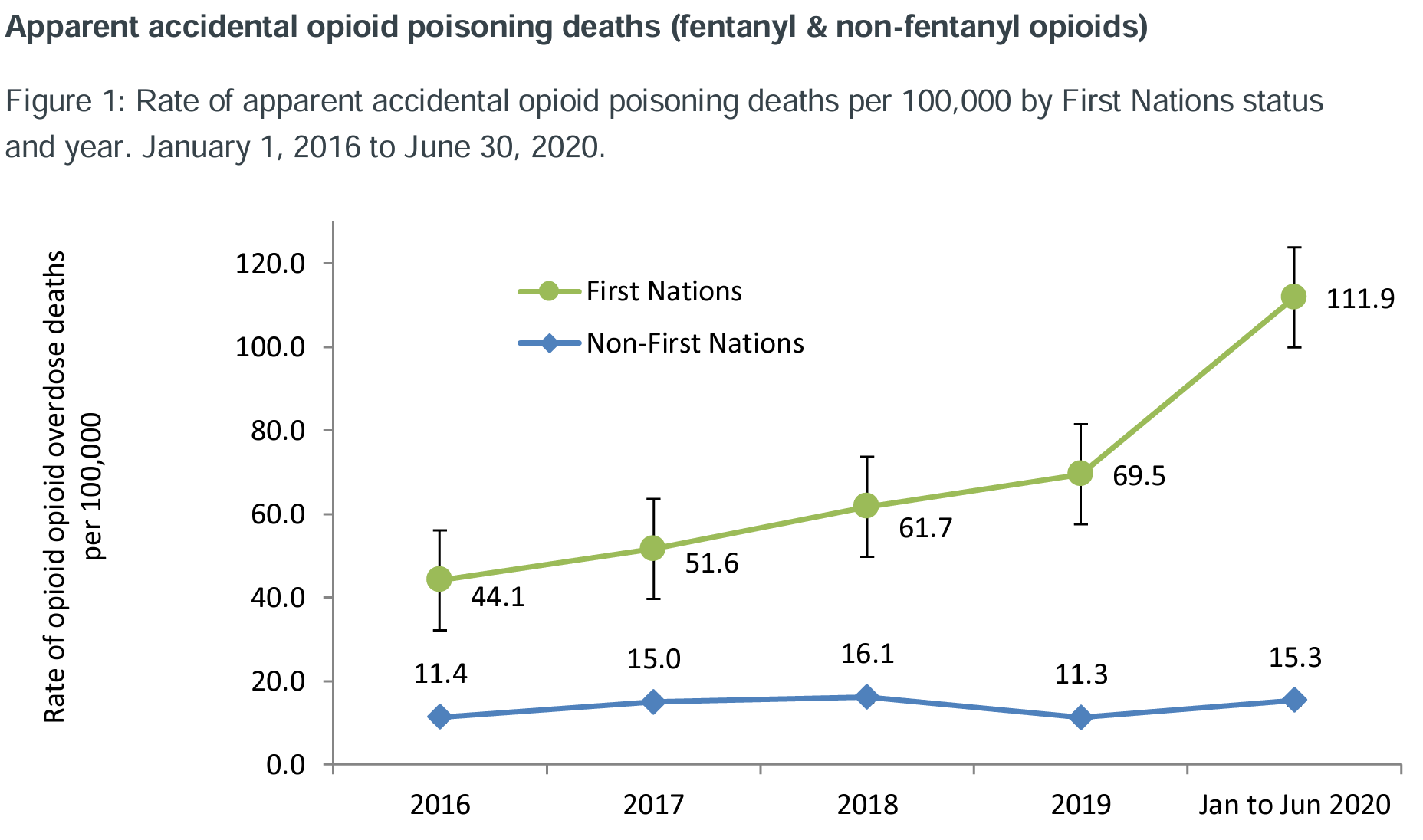
As Drug Data Decoded detailed with Indigenous advocates Michelle Robinson, Terrill Tailfeathers and Will Cardinal in Clearing the Plains 2.0, First Nations people have long been the target of genocide politics. The extractive greed driving this pattern precedes the railroad, but the methods have evolved. Today, governments can hand-wave about 'addiction' and stand idle while the ranks of young generations, who have long been the frontline land defenders, are traumatized and thinned out by unregulated drug toxicity. Non-First Nations people, afflicted by death but gaslit by a moral conviction that smears all illegal drug use as 'addiction,' watch helplessly. And hope for the best.
Walking this racist tightrope is a medicalized balancing act that serves up an industry bonus of growing the patient pool for medication and residential-based treatment. By legitimizing 'recovery capital' as the central aim of the strategy, the Alberta government appears to take measures to reduce deaths, however false.
Next, the actual death-reducing measures must be eroded or eliminated. Supervised consumption sites, made easy targets by allying with police leadership and a few hostile businesses, were first to go following the sham 2020 SCS Review coauthored by Recovery Capital Conference regular Dr. Rob Tanguay.
In 2022, the UCP government repeated the act with its Safe Supply review, having expanded the presenter invite list after two more years of Recovery Capital Conference networking. With a handful of physicians willing to manufacture panic about opioid diversion, the Alberta government justified its elimination of all take-home hydromorphone prescribing outside of chronic pain and inserted itself between family physicians, nurse practitioners and patients. The only exception is Ophelia Black, who courageously won an injunction against the Province to maintain her access.
It is now firmly established that in the current context of unregulated drug toxicity, safe supply is the best tool available for immediately reducing death rates.
Finally, the government's agenda must be mobilized by unifying pro-carceral elements, including police, the addiction industry and political operatives, under a banner of 'compassionate intervention.' Infantilizing people with no platform to speak for themselves helped justify the mass displacement of unhoused Edmontonians from encampments throughout this winter. It has long been the strategy used to force youth into addiction treatment centres. And, though it was quietly shelved in the last legislative session, we can expect the UCP plan to expand forced treatment options for adults to be reformulated for the next session.
When credibility fails
But as an avalanche of evidence buries these carceral manoeuvres, the credible actors speaking for the Alberta government begin to choke. In such moments, history tells us to expect brownshirts. American writer A.R. Moxon, who documents the descent into fascism with humour and prescience, memorably stated:
"since bullies operate on a sliding scale of permission, they have a pretty finely attuned radar for what is permissible, and how to skirt the margins of permissibility, and when those margins have changed."
Enter Adam Zivo.
On March 17, the National Post opinion columnist took to Twitter/X with an apparent awareness that the margins of permissibility are changing, or perhaps, the intent to adjust the margins himself.
Dr. Andrea Sereda is a leading safe supply-prescribing doctor who works in London, ON. Her brave testimony to the House of Commons Standing Committee on Health on the toxic drug crisis is worth a watch. Around March 14, a London anti-safe supply advocate amplified the small town Dr. Sereda lives in, public knowledge of which she has worked hard to protect because of a history of domestic violence. That tweet has since been deleted.
But, after taking a couple days to reflect (or consult lawyers), Zivo made the conscious decision to blast Sereda's personal information across the internet.
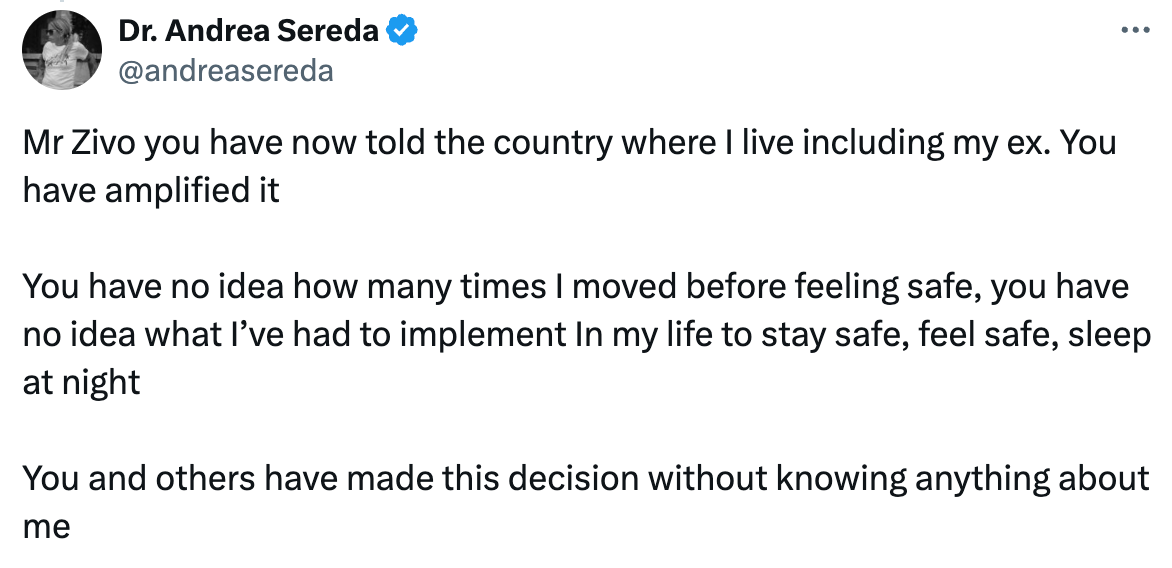
The point Zivo purported to make – that people who promote harm-reduction services often live outside the neighbourhood – is not the point he is making to his followers, and he knows this. Anyone who has spent time in a town of 7,000 can appreciate how easy it would be to locate someone to their kid's school, their grocery store and their home, but that is also beside the point.
Zivo is expanding the margins of permissibility: first, he wrote national columns calling Sereda out by name, though she is just one of many safe supply-prescribing physicians. Next, he showed up at her clinic, harassing patients and even providing identifying information on one. Now, he's sharing where she lives and providing information about her child. The next toe over the line is someone showing up in her town, and it is terrifying to ponder what follows that.
In the grand scheme, Sereda makes a useful prop for a misogynist like Zivo to send a message from his recovery capitalist handlers to physicians across the country: the cost of swimming against this death current will be fear that follows you home.
Drug policy researcher Dr. Gillian Kolla expressed her feelings on the matter, which are reprinted here with permission (adjusted for flow):
This weekend, respected physician Dr. Andrea Sereda was repeatedly harassed on X by National Post opinion columnist Adam Zivo. Dr. Sereda has worked for years providing primary care & outreach to some of the most vulnerable people in London. For years, she has worked in the community on programs in partnership with community orgs and police to keep women involved in sex work safe. Dr. Sereda works at a community health centre providing primary care to people experiencing homelessness who have very complex health issues and much difficulty finding treatment and care that meets their needs. She’s been recognized for this important work. Along with hundreds of trained & careful healthcare providers across Canada, she prescribes safer supply. This is why Zivo has targeted her. He publicly promised to "burn [safer supply] to the ground" and has been targeting physicians, researchers & public health officials ever since. Meanwhile, Dr. Sereda has been diligent in collaborating on research and evaluation with multiple teams of researchers from across the country on this novel and promising intervention. Results have been published in medical journals. She’s worked on peer-reviewed research studies documenting the benefits, challenges and barriers faced trying to scale-up prescribed safer supply during the dual public health crises of COVID and overdose. And has been part of research teams led by well-respected researchers at University of Toronto Public Health looking at impacts of safer supply on clients in Ontario.
Zivo is a bully and a charlatan. This is an intimidation campaign. Despite having no evidence for his claims & being told of the harms he is causing, he has doubled down. He is attacking Dr. Sereda and others because there is a strong and growing evidence base on safer supply. He is trying to paint a narrative that safer supply is a fringe practice, rather than lifesaving and important tool in combatting the fentanyl crisis, with mounting evidence of its benefits, particularly on reducing overdose mortality. Not only is this harassment campaign dangerous for Dr. Sereda and her family (the original tweet that started all this directly mentioned her child), Zivo's conduct is unethical. He is trying to increase polarization & intimidate experts on the front lines of the fentanyl crisis. It can be assumed that the National Post and its chief editor Rob Roberts platform Zivo and others like him because his polarizing rhetoric drives traffic & money to their site. Algorithms reward this harassment.
So does the Alberta government and the people that run its favourite drug war mouthpiece. Here is the Recovery Capital Conference session where Adam Zivo is scheduled to speak alongside Calgary physician Rob Tanguay and Sherwood Park Conservative MP Garrett Genuis. If you have a minute, make it known that you don't endorse giving bullies a platform to push their margins of permissibility:
- Email conference organizer Giuseppe Ganci: community@lastdoor.org
- Garnett Genuis and his constituency office can be reached here
- Reply to a self-congratulatory Rob Tanguay post on LinkedIn
- Tweet @westjet and @calgaryhomeless (featured sponsors who might listen)
- Share Gillian Kolla's thread

Drug Data Decoded provides analysis on topics concerning the war on drugs using news sources, publicly available data sets and freedom of information submissions, from which the author draws reasonable opinions. The author is not a journalist.
Send an email!




